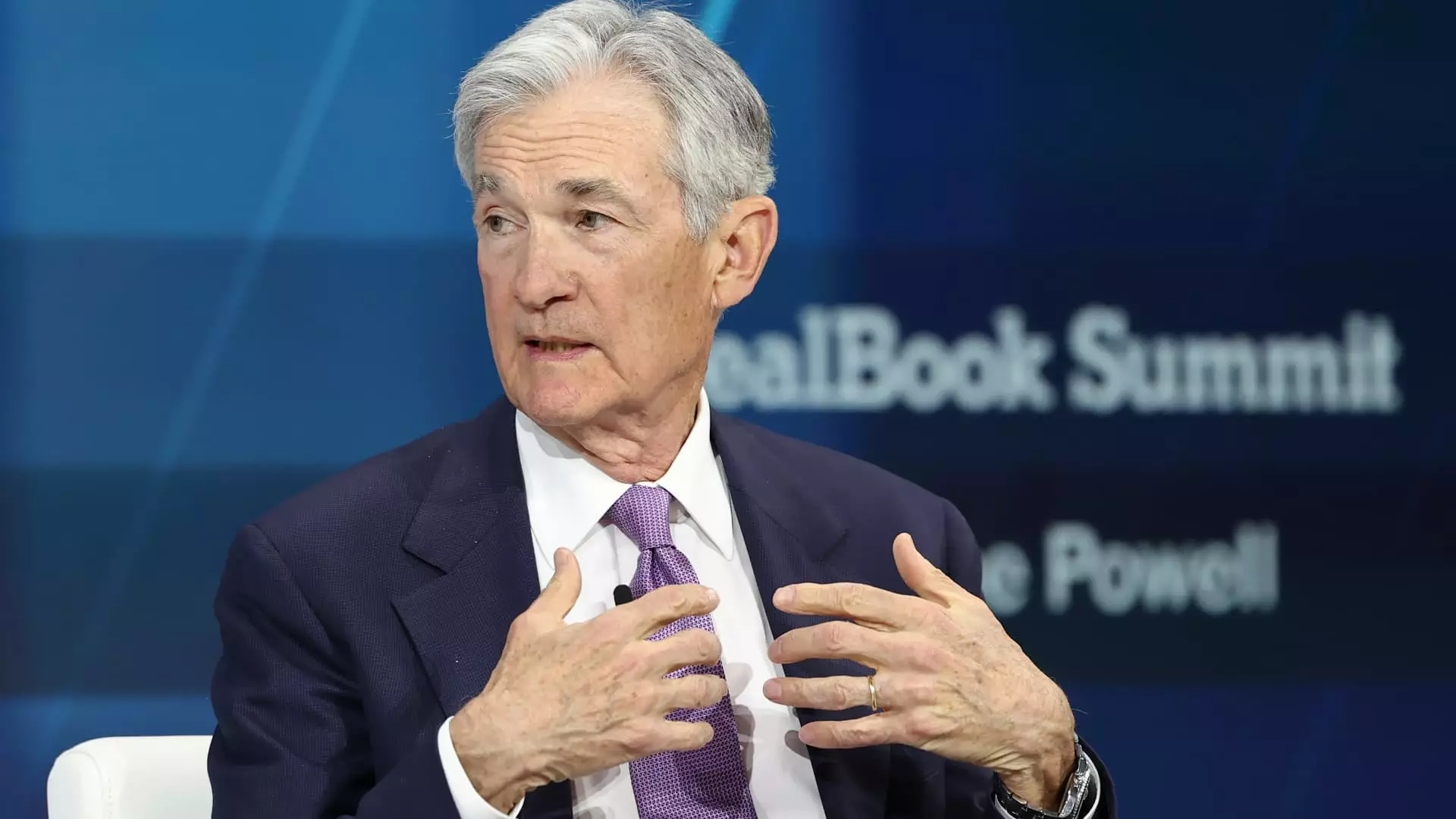In the complex landscape of cryptocurrency, few events stand out as influentially as the recent comments made by Federal Reserve Chair Jerome Powell. His remarks on Bitcoin during an interview at the New York Times’ DealBook Summit have sparked a renewed interest in the cryptocurrency market, coinciding with an impressive surge in Bitcoin’s value. This article delves deeply into the implications of Powell’s statements, the historical context of Bitcoin as an asset, and the broader dynamics of market forces that could shape the future of cryptocurrencies.
The Central Bank’s Perspective on Bitcoin
During the DealBook Summit, Jerome Powell emphasized a crucial point: he does not own Bitcoin, nor can he, due to regulatory constraints. This assertion seems to suggest a lack of personal investment in the cryptocurrency that is often portrayed as a rival to traditional fiat currencies. Powell’s insistence that Bitcoin poses no threat to the U.S. dollar but rather emerges as a competitor to gold raises significant questions. His classification of Bitcoin as a speculative asset—comparable to gold in its volatility—places Bitcoin squarely within the realm of unconventional investments. While it may not fulfill the traditional roles of currency, Powell suggests that investors increasingly view it as a modern equivalent of gold stores, valued more for speculation than as a medium of exchange or a stable store of value.
This characterization carries weight and provides a more formal recognition of Bitcoin, potentially legitimizing it in the eyes of both institutional and retail investors. The implications of such statements are profound; they suggest an acceptance of Bitcoin as an integral part of a diversified investment strategy rather than a fleeting digital trend. This recognition could prompt investors who have previously been hesitant about the cryptocurrency to reconsider their positions.
In the wake of Powell’s comments, Bitcoin experienced a noteworthy 4% spike, surpassing the $103,000 threshold. This dramatic rise occurred amidst ongoing volatility, showcasing the cryptocurrency’s ability to rapidly respond to influential news and sentiments from credible figures. Analysts, such as Joel Kruger from LMAX Group, point out that Powell’s comparison to gold adds a layer of legitimacy to Bitcoin as a significant asset in the global market. They suggest that this recognition could further incentivize investment in Bitcoin, particularly given its historic price disparity when compared to gold.
This moment also serves as a reminder of the unique characteristics of Bitcoin as an asset class. Unlike traditional investments, Bitcoin’s value is heavily influenced by market sentiment, regulatory news, and macroeconomic factors. The interplay between money supply decisions made by central banks and cryptos invites scrutiny, as regulatory voices like Powell’s can shift perceptions overnight, resulting in financial momentum that transcends predictable market behaviors.
The recent rally in Bitcoin’s price aligns not merely with Powell’s comments but also with a series of geopolitical events, including Donald Trump’s election and his subsequent nomination of Paul Atkins to lead the Securities and Exchange Commission (SEC). These developments add complexity to the regulatory landscape and could significantly influence market dynamics for cryptocurrencies. Investors are likely to respond favorably to perceived regulatory advancements, which could potentially ease concerns about legal clarity in the cryptocurrency space.
The contrast between Bitcoin’s impressive growth and gold’s more subdued performance since Trump’s election underscores a significant shift in how investors navigate risk and value retention. While gold remains a respected asset, Bitcoin’s volatility and speculative nature seem to attract a growing number of investors seeking higher returns, particularly in the context of a favorable monetary policy environment.
Jerome Powell’s statements regarding Bitcoin may seem simple at first glance, but their ramifications resonate throughout the cryptocurrency world. As the dynamic between traditional assets and digital currencies continues to evolve, Bitcoin seeks to carve out an identity beyond mere speculation. The validation from key financial figures and potential shifts in the regulatory framework promise to reshape the investment landscape, making it imperative for investors to remain astute and informed. The meeting of traditional financial perspectives with the brash world of cryptocurrency might just be the catalyst needed to solidify Bitcoin’s status in global markets for years to come.

